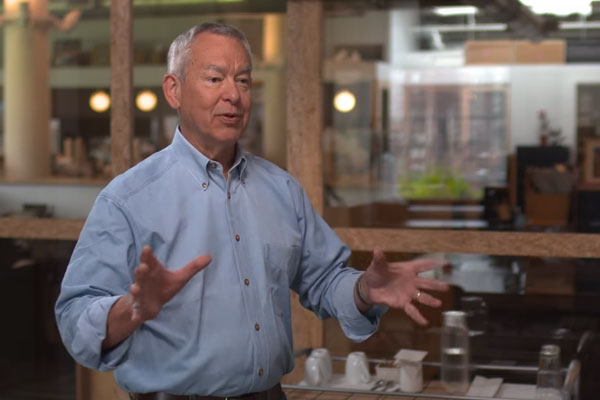By popular demand the About Face Student and Open Face categories of the Think Brick Awards have been extended to encourage more entries.
By popular demand the About Face Student and Open Face categories of the Think Brick Awards have been extended to encourage more entries.
May 15th, 2013
Students and architects have another week to win the chance to go to the 2014 Venice Biennale with the categories closing 5pm Friday, May 24 2013.
Think Brick Australia CEO Elizabeth McIntyre encouraged applicants to get their entries in to win the prize of a life time.
“The Venice Biennale is attended by thousands of the world’s most influential architects, designers and urban planners – it truly is something not to miss,” she said.
The About Face category requires students to design their own ‘Pholiota’ – the Melbourne home of Walter Burley Griffin and his wife Marion Mahony.
They must apply the same building technique used to construct the house – known as the Knitlock system – which involved interlocking concrete reinforced tiles.
Architects are encouraged to think outside the box in the Open Face category by taking ‘a view from the road’ and rethinking an existing site situated on a roadway from an airport in a capital city of Australia.
They are also asked to propose a medium sized commercial development and how the use of brick is specific to its location.
The winner of the About Face Student Award will receive a return flight and three night’s accommodation in Venice while the recipient of the Open Face Award will receive two business class tickets and five night’s accommodation in the city.
Submissions can be lodged online at www.thinkbrick.com.au
A searchable and comprehensive guide for specifying leading products and their suppliers
Keep up to date with the latest and greatest from our industry BFF's!

Savage Design’s approach to understanding the relationship between design concepts and user experience, particularly with metalwork, transcends traditional boundaries, blending timeless craftsmanship with digital innovation to create enduring elegance in objects, furnishings, and door furniture.

Create a configuration to suit your needs with this curved collection.

Marylou Cafaro’s first trendjournal sparked a powerful, decades-long movement in joinery designs and finishes which eventually saw Australian design develop its independence and characteristic style. Now, polytec offers all-new insights into the future of Australian design.

Channelling the enchanting ambience of the Caffè Greco in Rome, Budapest’s historic Gerbeaud, and Grossi Florentino in Melbourne, Ross Didier’s new collection evokes the designer’s affinity for café experience, while delivering refined seating for contemporary hospitality interiors.

Nick Bannikoff and Carlo Giannasca explain why they’re on a mission to build a strong community of experiential designers here in Australia.

With billions of years experience designing the most complex, efficient and waste-free systems, it’s no wonder designers are looking to nature for inspiration. In this video, we hear from four leading architects and designers as they discuss how they apply Biomimicry to their designs and how they went from inspiration to deeper learning and ultimately application to their work.
The internet never sleeps! Here's the stuff you might have missed

Symbolising a commitment to cultural preservation and timeless design, Powerhouse Castle Hill invites visitors into the stories behind the artefacts in a diverse range of educational and cultural activities.

Simon Liley, Principal Sustainability Consultant at Cundall, writes about how cyberpunk dystopias haven’t (quite) come to pass yet – and how designers can avoid them.